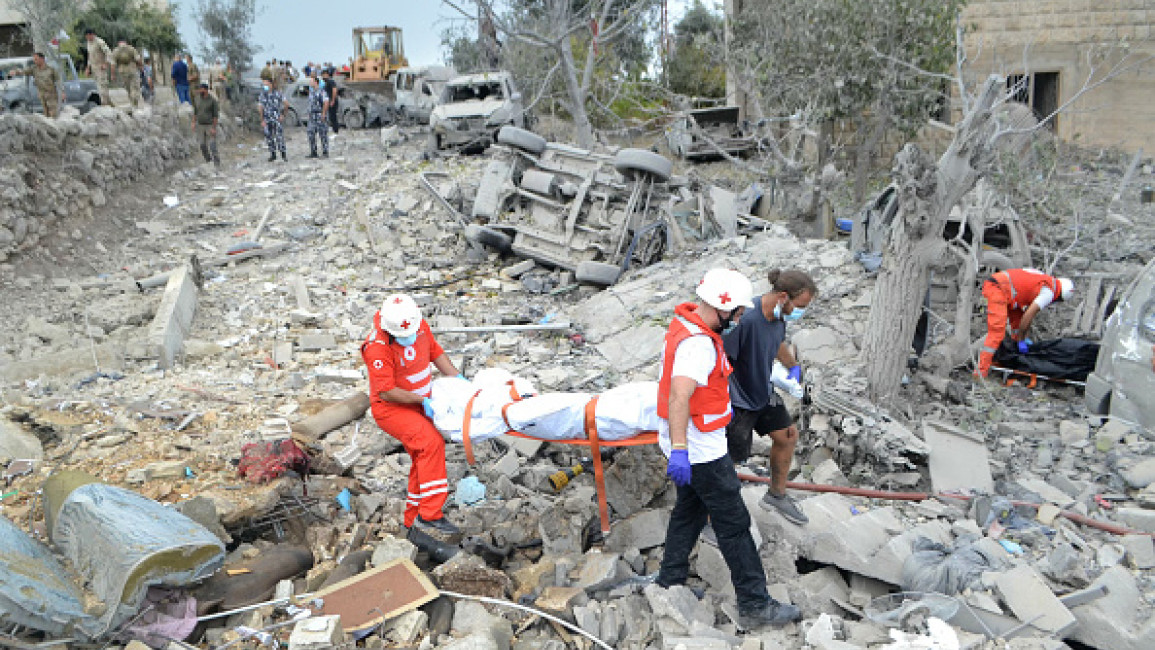Netanyahu says Israel opposes ‘unilateral ceasefire’ as Lebanon bombing continues
Israeli Prime Minister Benjamin Netanyahu said he was against a "unilateral ceasefire" in Lebanon during a phone conversation with French President Emmanuel Macron, his office stated on Tuesday.
"The Prime Minister said during the conversation that he was opposed to a unilateral cease-fire, which would not change the security situation in Lebanon," AFP reported.
The two leaders traded barbs after Macron told Netanyahu that it was important to respect UN resolutions, following repeated Israeli attacks on UNIFIL peace-keeping forces deployed in Lebanon.
The Israeli leader responded by saying: "A reminder to the president of France: It was not the UN resolution that established the State of Israel, but rather the victory achieved in the war..." referring to the Nakba, also known as the Catastrophe, of 1948.
Meanwhile, Lebanon’s Prime Minister Najib Mikati, said that the army was ready to be deployed south if there was a ceasefire, adding that the military has tightened the security of Beirut's airport in a bid to remove justifications for an Israeli attack.
The comments came as Israel continued to pound areas across Lebanon, including the western Bekaa and Hermel, as well as a hospital in Baalbek.
Attacks in Gaza
Israeli attacks also killed at least 55 people across Gaza on Tuesday, with several world leaders raising the alarm over the lack of aid in north Gaza and the dire situation across the enclave.
The US warned Israel that it could withhold some of its billions of dollars in military assistance unless it improves aid delivery to the Gaza Strip within 30 days.
In a letter sent on Sunday, Secretary of State Antony Blinken and Defence Secretary Lloyd Austin made "clear to the government of Israel that there are changes that they need to make again to see that the level of assistance making it into Gaza comes back up from the very, very low levels that it is at today.”
The letter pointed to US law requiring that "recipients of US military assistance do not arbitrarily deny or impede provisioning of US humanitarian assistance."
"Our hope is that Israel will make changes that we have outlined and that we have recommended, and as a result of those changes will be a dramatic increase in humanitarian assistance."
Turkey’s foreign minister also called for sanctions on Israel on Tuesday, urging the international community to cut support over the war on Gaza.
"We have reached the limit of words, diplomacy and international politics. We must start with sanctions," Foreign Minister Hakan Fidan told ruling party delegates at a meeting about the future of Palestine.
Fidan said Israel had not so far responded to calls to halt the Gaza war, meaning "the international community must now resort to legal action. Israel needs to be boycotted," he said.
Israel's war on Gaza has killed 42,344 people and wounded a further 99,013, while its bombardment of Lebanon has killed 2,309 people and wounded a further 10,782.




 Follow the Middle East's top stories in English at The New Arab on Google News
Follow the Middle East's top stories in English at The New Arab on Google News
![People gathered around the rubble of destroyed houses to search for survivors [Getty]](/sites/default/files/styles/image_330x185/public/2024-11/GettyImages-2184733820.jpg?h=199d8c1f&itok=NiM1LO2f)

